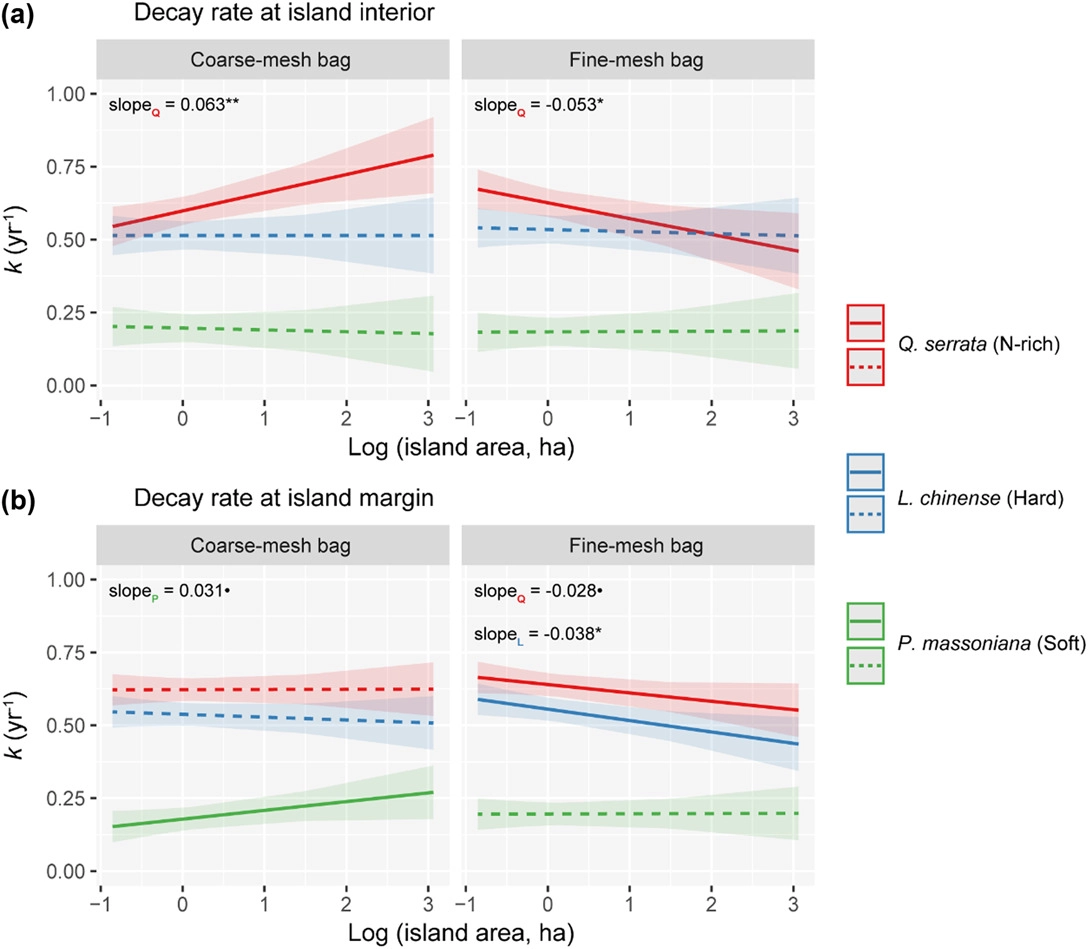Title: Island size affects wood decomposition by changing decomposer distribution
Wu Donghao, Seibold Sebastian, Ruan Zhen, Weng Changlu, Yu Mingjian
First published: 08 December 2020
https://doi.org/10.1111/ecog.05328
Abstract
Island biogeography theory describes the relationship between island size, isolation and biodiversity, but it does not address the effects on ecosystem processes such as wood decomposition. Wood decomposition rates can be expected to increase with decomposer diversity, which increases with island size and decreases with increasing island isolation. However, island size and isolation effects on wood decomposition may also act by impacting substrate composition, forest composition and biotic interactions among decomposers. In this study, branch‐wood decomposition rates of three locally dominant tree species deployed at 154 plots on 15 islands in Thousand Island Lake, China, were measured over one year. The results showed that decomposition rates in coarse‐mesh bags where both termites and fungi were allowed access increased with island size for the two tree species preferred by the termites. By contrast, decomposition rates in fine‐mesh bags which only fungi could access decreased with island size for the two tree species preferred by fungi. The positive effects of island size on termite feeding activity were mediated by a higher deadwood diversity, a more diverse forest composition and a higher soil moisture content, with forest composition shaping soil moisture. For fungal diversity, the negative effects of island size were attributable to a higher soil moisture content and termite feeding activity. Island isolation decreased fungal diversity but increased wood decomposition rates. Our study indicates that island size affects wood decomposition by altering the distribution of decomposers and their relative contributions to wood decomposition. Size–decomposition relationship further depends on the affinity between substrates and decomposer taxa. In general, our results show that ecosystem processes may be affected by island size and isolation, but the patterns are more complex than expected from the island biogeography theory. This discrepancy is largely due to the different responses and trade‐offs among different functional groups.
Link: https://onlinelibrary.wiley.com/doi/10.1111/ecog.05328






